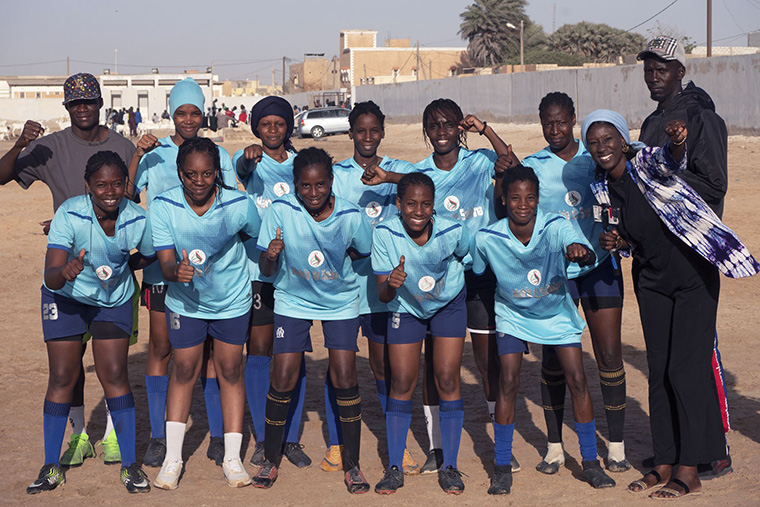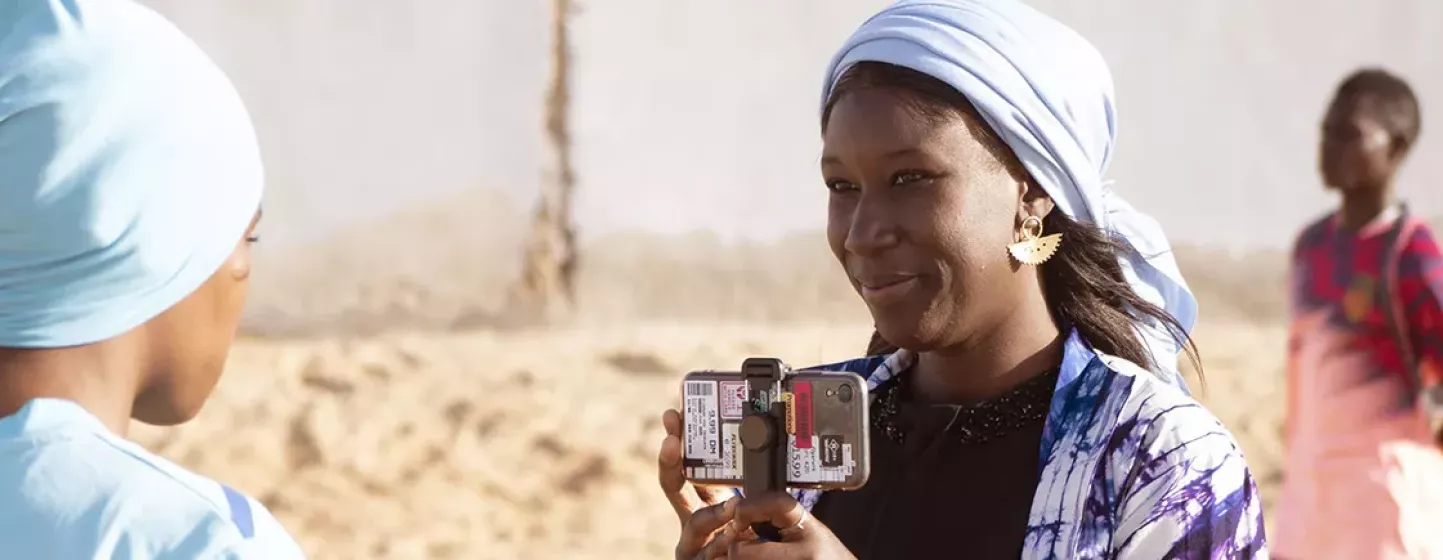One year later, what’s changed?
What has happened since your report was published in Mauritania?
Hawa Ba: Several things have happened since I produced that story. There were showings, followed by lively debates and varied reactions from the Mauritanian community. I was also invited onto a private channel, El Wataniya, to present my report.
Last year, you said you were fearful of the consequences of publishing your report in Mauritania. How was it received?
Hawa Ba: As a young female journalist and women’s rights activist, I felt a certain amount of apprehension about the impact of my report. In Mauritania, talking about certain sensitive subjects can make you worry about the community’s reaction. However, I think of it as my duty to contribute to changing mindsets, in particular in terms of perceptions and prejudices associated with women’s football. This production enabled new generations to learn lessons from the experience of young female footballers and offers paths towards solutions to combat prejudices and taboos in women’s football in my country. It has been used during awareness-raising campaigns, in particular at the Lycée Français international school, where the players themselves ran sessions to raise awareness among pupils. According to the Mauritanian Women’s Football Federation, the number of young female players has risen in both Nouakchott and the rest of the country. We have also seen a change in the attitudes of some parents towards women’s football.

On a personal level, what have you gained from this experience?
Hawa Ba: It enabled me to progress in my career. Thanks to the support from Afri’Kibaaru, I took the time I needed to create a good report, particularly in terms of preparation, choosing the angle, and finding resources. If I had the chance to do it all again, I would go deeper with my investigations by seeking the opinion of a religious leader on this issue. Numerous journalists, both senior and the new generation, enjoyed my work. My video generated real interest because it’s a hot topic in Mauritania and conveys a message that promotes women’s rights.
